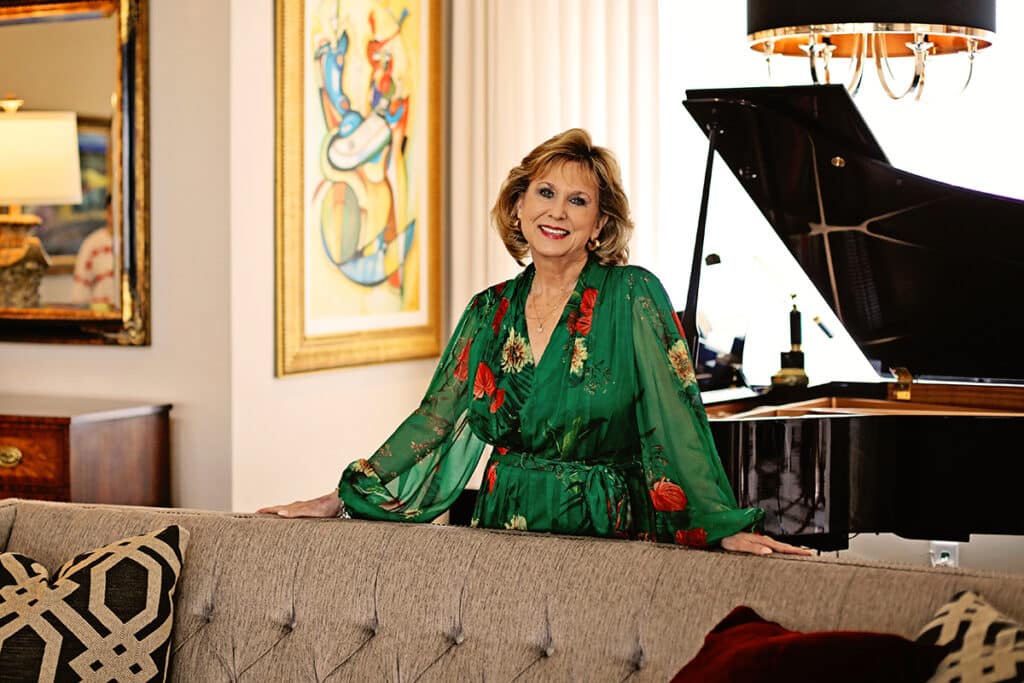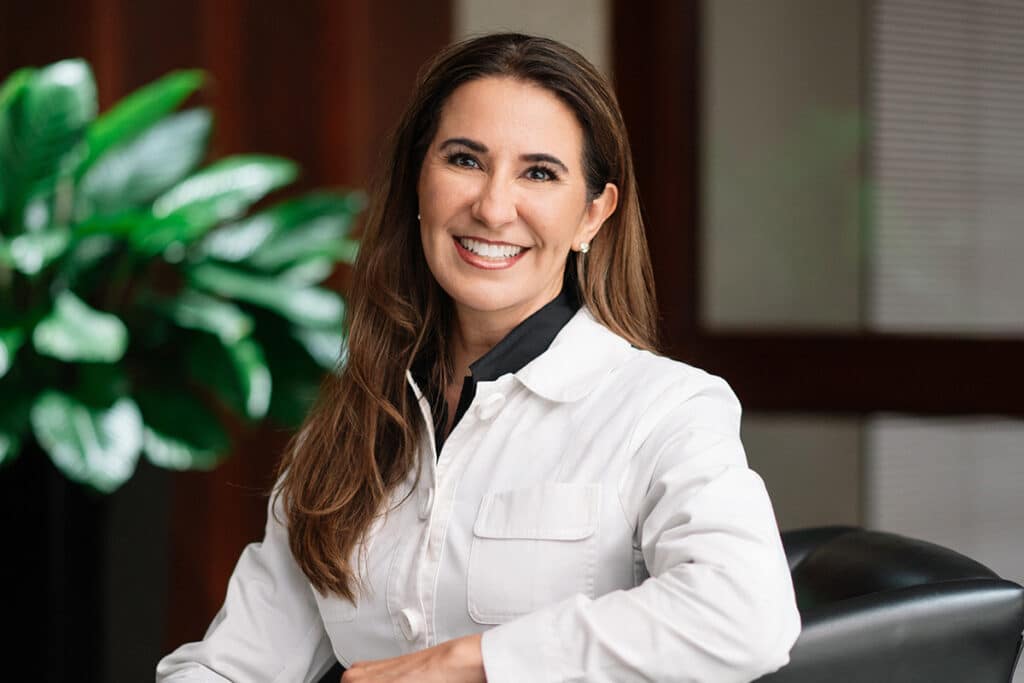The term “family law” can be misleading. The ubiquitous minivan comes to mind, with its rear window’s stick figure parade of parents, kids and pets. Yet that simple representation belies the complexities that families face today. Rising divorce rates, working parents, increased gay marriages and the growing field of assisted reproduction confound family’s simple, traditional notion.
These four women are leaders in family law, with a range of expertise in solving the numerous conflicts and issues that arise for the many varieties of today’s families. The two primary fields of family law, according to Christina Molitor, include “the issues relevant to the parent/child relationship as well as the dissolution of a marriage.” Molitor’s practice focuses on complex divorces, contentious custody cases and assisted reproduction arrangements.
All of these women bring compassion and empathy to the table. They are juggling their own complicated lives and demanding careers. Yet “you have the opportunity to shape the lives of the people who sit across the desk from you,” says Amy Geistweidt, whose specialties include litigation, military divorce and alternative dispute resolution.
Emotions run deep when a family is rendered apart. After almost 20 years of experience as a litigator, “there’s almost nothing you can bring to me that will shock me,” says Amber Liddell Alwais, who is the only female partner in her firm.
Rebecca Anne Gonzalez emphasizes that family law is about counseling people about their lives and connecting and listening to them. “My clients are everyday people. They are facing real challenges. We watch people facing bankruptcy and possibly losing their home at the worst time of their life. I’ve even talked people out of suicide,” she marvels. “There are lots of good lawyers in this city, but they don’t want to deal with the emotional part of this type of law. You have to be mentally tough to hear these cases over and over again,” sums up Gonzalez.
The advice they offer to young women lawyers following in a similar path was resoundingly consistent: It’s a big city but a small community, so maintain a professional reputation. Don’t hesitate to ask for help when you need it from older lawyers who are happy to mentor. There are a multitude of opportunities for leadership in various law organizations and through volunteer work.
Family law presents a minefield of emotional, financial and ethical challenges.
These women become advocates, guiding their clients and their loved ones through situations that often seem insurmountable. “There are cases where I say, I helped a child today,” says Alwais. “I made sure that child was safe and ended up in the right place, and that’s why I went into this profession, and that is why I practice family law, when I know I helped a child in danger.”
Rebecca Anne Gonzalez
Rebecca Anne Gonzalez is the eldest grandchild of San Antonio’s much heralded congressman, the late Henry B. Gonzalez. The Gonzalez family traces its roots back to the Mexican-American War with a present-day lineage dotted with respected lawyers, medical professionals, teachers and political and community servants. Being a part of the Gonzalez family meant growing up surrounded by highly educated, accomplished people with the bar set high to achieve the same high standards. This was the setting of Rebecca Anne Gonzalez’s life from the start.
“I knew I wanted to be a lawyer since I was 5 years old,” recalls Gonzalez. “Every weekend, I spent with my grandparents Gonzalez. I would go with my grandfather Henry B. to the taping of his weekly televised address. He was very connected to the people and answered all his mail himself. I learned passion, drive and desire to fight for what you believe in, no matter what the challenges may be.”
Gonzalez graduated from St. Mary’s University with a BBA in finance and then earned her JD degree from St. Mary’s Law School, just like her prominent grandfather and other family members who call St. Mary’s their alma mater. She was licensed to practice law in 1995.
Upon marrying, Gonzalez did as many women do, she “off-ramped” from her burgeoning law career to support her husband’s professional goals and practice. In her case, that meant helping him maintain a healthy surgical practice and medical day spa. “Then one day I realized that my marriage was not going to work, and I filed for divorce. I decided I had to figure myself out. Even though we had no children, it was a tough divorce and took several years to complete,” she says. It is that painful experience coupled with the death of her mother, Rosemary, a schoolteacher, from cancer, which thrust Gonzalez back into the legal world.
After stints with the San Antonio office of Glast Phillips and then with Chris Weber, Gonzalez launched her own practice, the Law Offices of Rebecca Anne Gonzalez. That was four years ago, and today her practice is thriving. “I thought law would be the hardest thing to come back to, but once I began practicing again, I realized it best fit my skill set,” she says. “It’s fair to say it is what I should have been doing all along.
“These painful events — my mother’s death, my divorce and my job loss — pushed me to decide I had to rebuild myself and go out on my own.”
It is estimated that 90 percent of San Antonio’s courthouse docket is filled with family law-related cases, Gonzalez says. And she is not surprised 95 percent of her business has become family law. Her firm assists with a wide range of legal matters including contested and uncontested divorce, domestic partnerships, child custody, child support, adoption, child protective services and military divorce, real estate litigation and homeowner association litigation.
“My firm has grown to five lawyers, including myself, and five paralegals in four years, and we are bursting at the seams,” she explains. “Most afternoons my office has 15 to 25 people here. Kids go to the conference room and are given snacks while I meet with their parents. We will have a special kids’ area in our next office space,” Gonzalez says, referring to a new building she is preparing to acquire for her growing enterprise.
“My strength is that I am best at connecting with people. I think that is how I have grown as far as I have in such a short time,” says Gonzalez. “My unique quality I have over other lawyers is that I have lived through divorce, and I have that life scar, and I understand how hard it is to get past.”
When asked about the cases she has seen, Gonzalez responds, “My firm serves everyday people and lots of military families, which reflects San Antonio’s market. Many of them do not realize the time and expense that go into divorce or custody cases. I give them the big picture. If divorce should happen, I suggest they try to be in the best position to have a good outcome — stay educated, be financially sound and show you are a fit parent.” She continues, “I don’t always sign people up the same day they come meet with me. I think that helps potential clients respect me and return. I encourage them to try to work things out. I try to talk people out of divorce,” she says.
Amber Liddell Alwais
Amber Liddell Alwais is board certified by the state bar as a specialist in family law. During 20 years of practice she has observed three stages of divorce. “For the person who doesn’t want the divorce the first stage is, ‘I will do anything to get you back, including chewing my right arm off and giving it to you.’ And the second stage is, ‘I am so hurt and so angry that I am going to make you pay for putting me and my family through this,’ and hopefully they make it into that last stage which is, ‘It’s over, I know it’s over, I’m not happy that it’s over, but I’ve got to move on with my life.’”
Alwais hopes that clients will reach the third stage, but she observes, “Some people get caught between that second and third stage and spend the rest of their lives and most of their money litigating… The phrase, ‘Do you really want to pay me your child’s college tuition to fight this divorce?’ is a fairly common expression.”
As a family lawyer, Alwais’ strength is in litigation, something she inherited from her father. “I have more patience than he does, but we’re both very determined, strong in our opinion (read—stubborn!), and we both love to win and hate to lose. We have a drive and a passion. My job is to get out there and advocate, not to be diplomatic.”
When she attended law school, she promised her father she wouldn’t go into family law, which was his specialty. But when she got out, she was first employed in family law and discovered she was good at it.
“There’s almost nothing you can bring to me that will shock me,” says Alwais, meaning “the extent that people will go to malign their soon-to-be former spouse.” As a child, she experienced her own parents’ divorce, which was not amicable, so she knows what her clients are feeling. “The less amicable a divorce, the more indelible the memories are that are going to be left with your children about the divorce.
“Most clients promise you that they are never going to put their children in the middle, that they are never going to use their children as weapons, and 99 percent of them don’t realize that is what they end up doing. So you have to sit them down and say, ‘Let me explain to you how you are accidentally or unintentionally putting your children in the middle when you think you’re doing what’s best for them.’”
Geographic restrictions “are the most litigated issue in family law these days,” says Alwais. “We are a mobile society. No longer do people live and die in the same town or even the same area. People move, and here in Military City, USA, the chances are pretty high that when there is a divorce in a military family, one of the parents is going to move and want to take the kids with them.”
Alwais is the youngest woman to reach partner in her firm. “Three months after I gave birth, I made partner. I’m very proud of that,” she says. She believes the best way she is giving back to her daughter is through her hard work and the example she is setting for her.
Amy Geistweidt
 Family law is what keeps Amy Geistweidt awake at night; that’s how she knows it’s her passion. “I think it picked me,” she says. Licensed in 1993 and board-certified as a specialist in family law, Geistweidt has been practicing family law for over 20 years. She worries about “the kids involved” and “what people are going through, sometimes one of the worst time periods of their life.”
Family law is what keeps Amy Geistweidt awake at night; that’s how she knows it’s her passion. “I think it picked me,” she says. Licensed in 1993 and board-certified as a specialist in family law, Geistweidt has been practicing family law for over 20 years. She worries about “the kids involved” and “what people are going through, sometimes one of the worst time periods of their life.”
There are no easy answers, except being able to help her clients in the best way possible: “The most important thing that I think I do well and try to practice is to listen to the clients and communicate well. That’s what they need most. It’s so helpful when you’re in a courtroom or you’re in mediation, when you have taken the time and the patience to listen to them that you know where they’re coming from, you know what’s important to them, you know who they are…so they can come out of it as healthy as possible when it’s done.”
Geistweidt takes on a mixture of cases, including those that focus on property division and child custody.
She enjoys collaborative law, which is relatively new. She explains, “We sign an agreement at the beginning of the case. The agreement is that neither of the parties will use attorneys who are working on the case to do any type of litigation. We commit to being open and honest and forthright. We commit to being positive in the process, and we commit to a series of meetings where we sit down and go through both sides’ goals, and we bring in the professionals that we need, whether it’s a business evaluator, a CPA, a child psychologist, a mental health professional or a counselor for one or both of the clients. Normally in the first meeting we establish a road map, in the next meeting we establish the inventory and the goals, and in the next meeting we start talking about how we can best settle the case for the parties. We commit to that process, and we get things resolved by sitting down and having those meetings and not ever in a courtroom.”
The difference between collaborative law and mediation, she explains, is that “mediation is inside of litigation. My file is absolutely confidential in a mediation deal, whereas in collaborative law, you can be more open and sharing with the other side the information that you have. If it fails, then both sides have to go out and hire different attorneys to prepare a litigation file.”
Born and raised in Fredericksburg, Geistweidt grew up in a very close family environment. She met her husband in church when she was a teen. They now live in Comfort, raising cattle and sheep on their ranch with their 16- and 11-year-old son and daughter. She spends her free time with their kids doing their many activities. This environment helps her retreat from the conflicts that she deals with on a daily basis.
Christina Molitor
 For Christina Molitor, going to graduate school was a given in her family. “It was never ‘if you go’, it was ‘when you go.’ My parents always expected it.” She was raised in New York and discovered a love for the Spanish language after spending her junior year abroad in Barcelona. She continued refining her ability to speak the language in the Dominican Republic and then Madrid, where she met her Spanish husband. After their marriage, the couple chose San Antonio because it would be an easier transition for him, as a Spaniard, to the U.S., and because she thought it would be helpful to use in her law practice. They’ve been here since she was licensed in 1995 as a board-certified specialist in family law.
For Christina Molitor, going to graduate school was a given in her family. “It was never ‘if you go’, it was ‘when you go.’ My parents always expected it.” She was raised in New York and discovered a love for the Spanish language after spending her junior year abroad in Barcelona. She continued refining her ability to speak the language in the Dominican Republic and then Madrid, where she met her Spanish husband. After their marriage, the couple chose San Antonio because it would be an easier transition for him, as a Spaniard, to the U.S., and because she thought it would be helpful to use in her law practice. They’ve been here since she was licensed in 1995 as a board-certified specialist in family law.
Since then, Molitor has built a practice that specializes in divorce, custody and assisted reproduction. With three children of her own, she can call upon this experience while guiding her clients through difficult life decisions.
“I like to say that I’m a family-restructuring attorney for divorce clients and a family-forming attorney when I’m working on my assisted reproduction work,” says Molitor. “I don’t believe in destroying family during the divorce and custody process. I think we have an obligation to leave our clients and their children in as good a condition as we possibly can at the conclusion of their case.”
When working with divorce clients, she asks, what are their goals, where do they want to see themselves in five years or even 10 years from now? Do they want to see themselves particularly in a divorce situation having a cordial relationship with the other parent? Or do they want to be in a situation where they can’t even look at one another at their child’s graduation?
Molitor brings her experience and compassion to each case and makes it a priority to be candid. “I make sure that they see they have a viable plan moving forward,” she explains, because the beginning of a divorce is the most challenging and frightening, when clients are uncertain and faced with the unknown.
With advancements in the fertility field, Molitor has noticed a trend in assistive reproduction in which people are choosing surrogacy over adoption. Specifically, she means surrogacy in which the parents have a genetic relationship with the child, which would involve the parents’ egg, sperm or both. This lowers the risk of birth mothers changing their minds.
“I can’t say enough how much I enjoy the work,” says Molitor, who has grown her practice through referrals. The law gets complicated when it comes to gay couples or single parents, but Molitor emphasizes the importance of the child’s rights to inherit wealth, survivor benefits and health insurance from both parents. “We have an obligation to these children who are being brought into the world and are being raised by two parents. Not only should they have that assurance; they should have that emotional connection between both parents, regardless of the genetics,” she stresses.
The complexities with law can be challenging, but Molitor loves witnessing and being a part of the “total joy that they are going through,” when a child comes into the world. “It’s the feel-good stuff,” she says.





